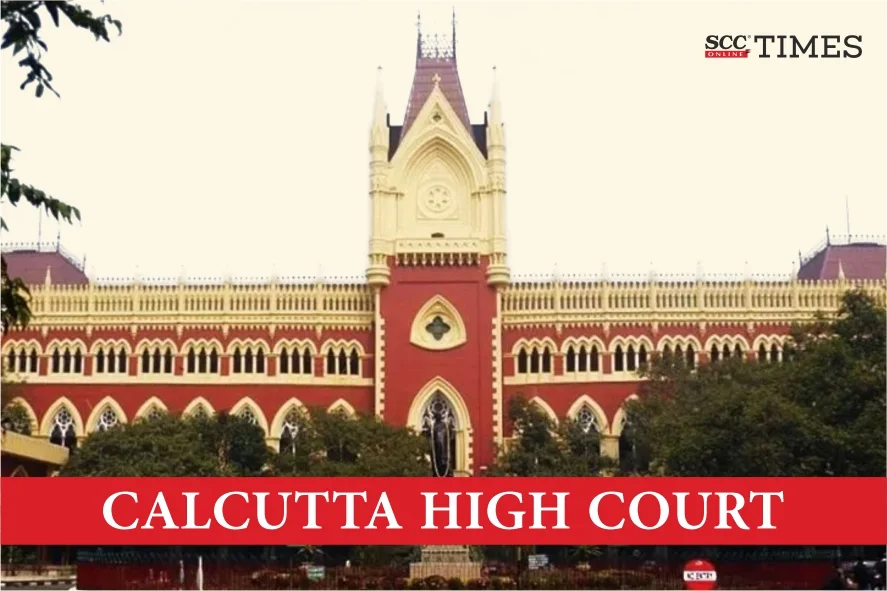Calcutta High Court: An appeal was filed by State (appellant) challenging the interim order allowing Joint Forum of Doctors (respondents) and one of its members, to hold a peaceful sit-in demonstration at Dorina Crossing, Esplanade, Kolkata, under certain restrictions on the grounds of scope and the jurisdiction of the writ court in entertaining the writ petition assailing the decision of the executive in declining to grant permission to hold in sit-in-demonstration. A division of Harish Tandon and Hiranmay Chatterjee, JJ., chose not to interfere with the impugned order, however, modified it to the extent that instead of 200 to 250 people should be restricted to 100 as prayed for by the respondents.
The respondents approached the police authorities for permission to hold peaceful protest raising certain grievances relating to an unfortunate and barbaric incident of R.G. Kar Medical College and Hospital on the night of 09-08-2024 which was declined by the police authorities on 16-12-2024 citing a reason that because of the ensuing Christmas eve and the new year eve, large number of people from different parts of the State and the city of Kolkata visit the place where the proposed peaceful sit-in demonstration was sought to be held by the respondents and there was every possibility that congestion would be created because of the same causing inconvenience and/or difficulties to the peoples who celebrate such festival.
A petition was filed claiming various reliefs and the primary relief being that they should be permitted to continue with the demonstration at Dorina Crossing, Esplanade, Kolkata without any undue influence by the police authorities by setting up necessary infrastructure and the designated demonstration site and be treated equally with the other political parties and organizations who have organized the protest rallies and/or demonstration by setting up the stage. The Single Bench passed an interim order allowing the peaceful sit-in demonstration by the respondents and the place where the demonstration would take place is 50ft. away from the main crossing. Thus, an appeal was filed by the State on the scope and the jurisdiction of the writ court in entertaining the writ petition assailing the decision of the executive in declining to grant permission to hold in sit-in-demonstration.
The Court noted that there is a separation of three organs envisaged in the Constitution of India and its powers and functions are also well defined. The transgression and/or overlapping amongst the three organs is always eschewed and care and protection are always envisaged so that all the three organs can act independently in discharge of their solemn duties. The Courts have imposed self-restraint in entering into the arena of administrative functions unless and until it fails the test of reasonability (Wednesbury principle).
The Court further noted that the order which is bereft of reasons cannot be regarded as an order in the eye of law. The reason is the heart and soul of any order without which it cannot survive. There is no fetter on the part of the appellate Court to provide reasons, in the event, the appellate Court found that the ultimate decision appears to be correct. The question hinges on the right of civil society to hold demonstrations which are peaceful and non-violent being one of the facets of the fundamental rights guaranteed under the Constitution.
The Court remarked that “every citizen of the country has a right to make a peaceful protest and, therefore, while refusing to grant such permission, the authorities must also bear in mind the other past incidents where the permission was granted. Though Mr. Bandyopadhyay, learned senior advocate highlights that in the past there has been a congestion in an around the area where the protest was held but there has been several other incidents where the permission was granted and the inconvenience to the public has been seen.”
The Court concluded that there is no justification in the stand of the police authorities in refusing to grant permission but equally it cannot be overlooked that the respondents themselves in the writ petition indicated that there will be only a gathering of 100 peoples but in the impugned order, the Judge has increased it to 200 to 250 people. “The Court cannot substitute its own view and pass an order which is neither pleaded nor prayed for by the parties.”
Thus, the Court modified the order to the extent that instead of 200 to 250 people should be restricted to 100 as prayed for by the respondents, however, the other portion of the impugned order was not interfered.
[State of WB v. Joint Platform for Doctors, 2024 SCC OnLine Cal 11481, decided on 23-12-2024]
Judgment by: Justice Harish Tandon
Advocates who appeared in this case:
For the appellant: Mr. Kalyan Bandyopadhyay, Sr. Advocate Mr. Sirsanya Bandyopadhyay, J. S.C. Ms. Amrita Panja Moulick, Advocate Mr. Arka Kumar Nag, advocate Mr. Rahul Singh, Advocate
For the respondents: Mr. Bikash Ranjan Bhattachasryya, Sr. Advocate Mr. Samim Ahmmed, Advocate Ms. Saloni Bhattacharya, Advocate Mr. Enamul Islam, Advocate






